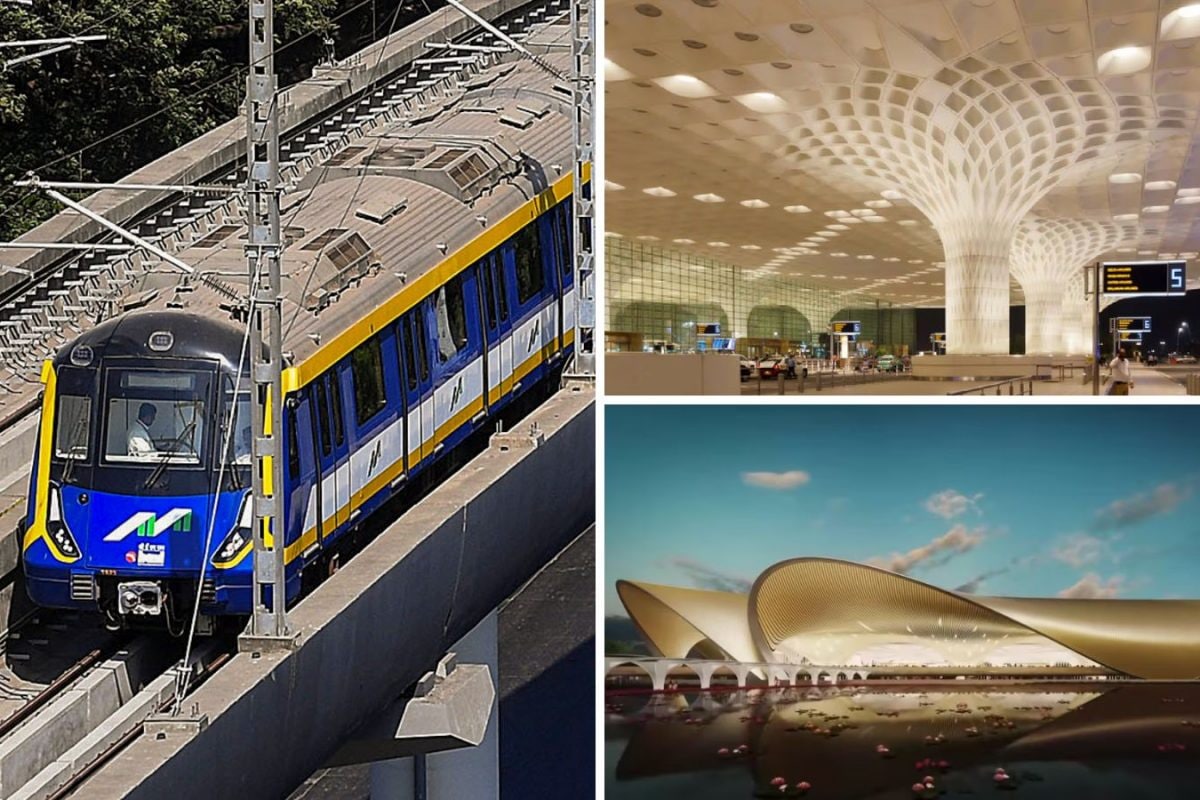

Mumbai's Metro Line 8, also known as the Gold Line, is poised to revolutionize connectivity between the city's two international airports: the existing Chhatrapati Shivaji Maharaj International Airport (CSMIA) in Andheri and the upcoming Navi Mumbai International Airport (NMIA). This ambitious project aims to significantly reduce travel time between the airports, ease traffic congestion, and enhance the overall commuting experience for millions of passengers.
The 34.9-kilometer corridor is designed to operate as an airport express line, drastically cutting travel time between CSMIA and NMIA to approximately 30 minutes. Currently, road travel between the two airports can take over two hours, especially during peak hours. The Gold Line will offer a swift and reliable alternative, making it a preferred choice for air travelers and commuters alike.
The Mumbai Metropolitan Region Development Authority (MMRDA) and the City and Industrial Development Corporation (CIDCO) are jointly undertaking the project. CIDCO was tasked with preparing the Detailed Project Report (DPR) for the line. The project is being developed under the Public-Private Partnership (PPP) model, similar to Mumbai Metro Line 1.
The construction of Metro Line 8 is planned in phases, with the goal of making the line partially operational by 2028, coinciding with the opening of NMIA Phase 1. The line is expected to have a frequency of 15 minutes.
The Gold Line will feature a combination of underground and elevated sections. Starting at CSMIA Terminal 2, the line will run underground until Chheda Nagar, after which it will transition to an elevated track along the Sion-Panvel Highway. This alignment was chosen as a more practical and efficient engineering solution compared to the previously considered route via Palm Beach Road.
The route will pass through key urban locations such as Kurla, Lokmanya Tilak Terminus (LTT), Mankhurd, Vashi, Nerul, and Belapur. These strategic connections will enhance multimodal connectivity by linking metro lines with suburban and long-distance train services, providing seamless transfers for commuters. The Gold Line is designed to integrate with seven existing and proposed metro lines within the Mumbai Metropolitan Region (MMR), further improving commuting efficiency across the city and surrounding areas.
The project is estimated to cost between Rs 15,000 crore and Rs 20,000 crore. With an anticipated daily ridership of 9 lakh passengers, Metro Line 8 is expected to significantly alleviate traffic on major arterial roads such as the Eastern Express Highway and the Sion-Panvel Highway.
The development of Metro Line 8 is expected to have a positive impact on the real estate market, particularly in areas near the metro line. Increased connectivity is likely to drive up property values and stimulate commercial development, including the rise in number of offices and commercial centers.
Once completed, Mumbai will join a select group of global cities offering rapid rail-based airport transfers. The project is seen as a crucial component of the region's broader urban development strategy and aligns with India's goal of becoming a $5 trillion economy.
The Mumbai Metro Line 8 represents a significant investment in the city's infrastructure, promising to transform airport connectivity, reduce traffic congestion, and enhance the overall quality of life for residents and visitors alike.